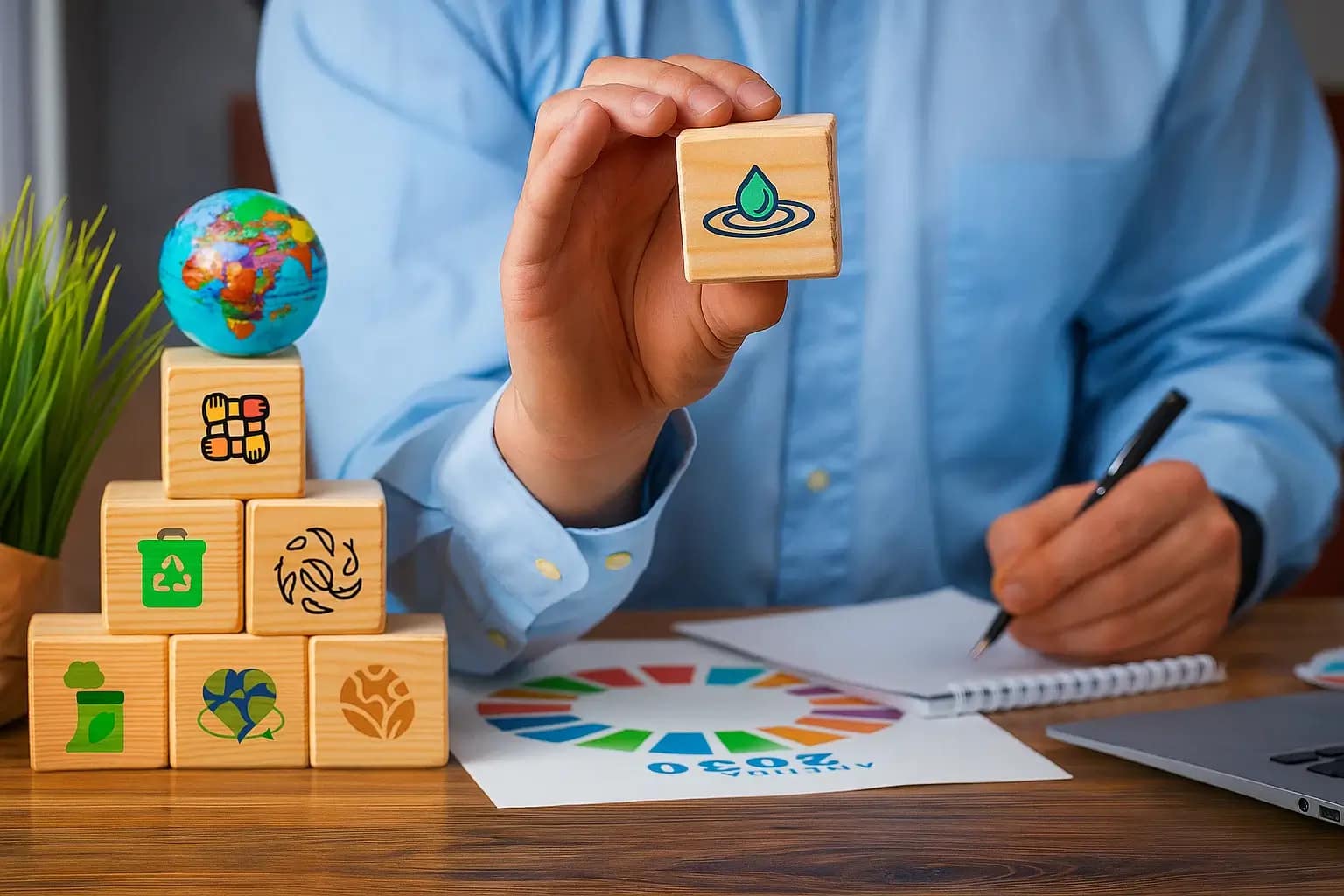Background
This Ahmedabad-headquartered pharmaceutical giant, listed on the stock exchangeand trusted in more than 70 countries, is a recognized leader inActive Pharmaceutical Ingredients (APIs) andfinished dosage formulations. With state-of-the-art facilities,strong R&D, and regulatory approvals from USFDA, EMA, and global agencies,the company is a cornerstone of India’s pharmaceutical export sector.Asoperations expanded, the leadership identified pressing challenges:
Quality Inefficiencies
Rising internal rejection rates were causing waste, rework, and avoidable costs.
Environmental Footprint
Higher effluents, emissions, and process waste were creating compliance pressure and investor scrutiny.
Safety Concerns
Recurring Lost Time Incidents (LTIs) and first-aid cases highlighted the need for stronger risk management.
Energy & Emissions
Heavy dependence on fossil fuels was driving up costs and greenhouse gas (GHG) emissions, clashing with the company’s sustainability aspirations.
In response, the company embarked on an ambitious journey to institutionalize global best practices through four internationally recognized standards:
ISO 9001:2015 – Quality Management
ISO 14001:2015 – Environmental Management
ISO 45001:2018 – Occupational Health & Safety
ISO 50001:2018 – Energy Management
Implementation Approach
The company adopted a fully integrated management system model, aligning quality, environment, safety, and energy to business goals.
- Introduced risk-based quality controls across manufacturing lines.
- Implemented Statistical Process Control (SPC) for real-time deviation tracking.
- Strengthened CAPA (Corrective & Preventive Action) for systemic improvements.
- Enhanced supplier quality programs, ensuring raw material consistency.
- Conducted life cycle assessments (LCA) to map major environmental hotspots.
- Installed Zero Liquid Discharge (ZLD) systems, achieving over 90% reuse of process water.
- Introduced segregated waste handling, improving recycling rates of plastics, solvents, and packaging.
- Launched green solvent substitution programs to cut VOC emissions.
- Announced a formal commitment to Zero Waste to Landfill by 2030.
- Rolled out Job Safety Analysis (JSA) for high-risk operations like chemical transfer and reactor handling.
- Implemented behaviour-based safety (BBS) programs, driving proactive reporting of unsafe acts.
- Conducted emergency mock drills and enhanced contractor safety protocols.
- Digitized incident reporting dashboards for faster corrective action.
- Completed comprehensive energy audits to identify efficiency gaps.
- Installed VFDs, high-efficiency boilers, and waste heat recovery units (WHRUs).
- Commissioned captive solar plants across facilities and signed PPAs for wind energy.
- Introduced real-time energy monitoring platforms for predictive analytics.
- Deployed Waste-to-Energy (WTE) Boilers, converting non-recyclable process waste into clean energy — simultaneously cutting landfill waste and fossil fuel use.
Results & Achievements
- Internal rejections reduced by 23% within 18 months.
- Improved yields saving ₹30 Crores annually in direct costs.
- Stronger compliance performance during FDA & EMA inspections.
SDG Alignment: SDG 9, SDG 12
- 28% reduction in hazardous effluents, with >90% water reused via ZLD.
- 78% solid waste recycled, with WTE boilers further reducing landfill dependency.
- Zero Waste to Landfill by 2030 commitment well underway.
SDG Alignment: SDG 6, SDG 12, SDG 13
- Lost Time Incidents down 50%, first-aid cases down 40% in two years.
- Employee engagement in safety programs increased significantly, improving retention.
SDG Alignment: SDG 3, SDG 8
- 18% overall energy reduction across plants.
- 14 GWh annual energy savings, equal to powering 9,000+ households.
- 12,500 tonnes of CO₂e avoided annually, supported by solar, wind PPAs, and WTE boilers.
- Renewables now supply 26% of total energy needs, with a goal of 50% by 2030.
SDG Alignment: SDG 7, SDG 9, SDG 13
Strategic Impact

Market Differentiation
Secured preferred supplier status with ESG-conscious global pharma companies.

Investor Confidence
Improved ESG scores, attracting sustainable finance and equity investors.

Operational Excellence
Integrated systems reduced silos, creating enterprise-wide efficiency.

Future Readiness
Clear roadmap for Zero Waste to Landfill and 50% renewable energy mix by 2030.
Conclusion
By embedding ISO 9001, ISO 14001, ISO 45001, and ISO 50001, this Ahmedabad-based pharmaceutical major has transformed challenges into opportunities — improving quality, minimizing waste, strengthening workplace safety, and leading climate action.
From captive solar plants and wind PPAs to WTE boilers and ZLD systems, the company has combined innovation with responsibility, creating measurable impact across operations. Its commitment to Zero Waste to Landfill by 2030 and clean energy transition underscores a long-term vision: to be not only a global pharmaceutical leader but also a sustainability pioneer in Indian industry.
This journey exemplifies how quality, safety, environmental stewardship, and energy efficiency can converge to create a resilient, responsible, and future-ready enterprise — aligned with the UN Sustainable Development Goals (SDGs) and global investor expectations.





